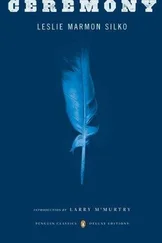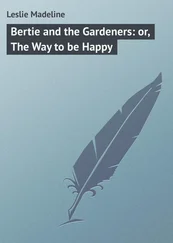The local magistrate counted the money twice and ordered Edward’s immediate deportation; early the following morning, deckhands lifted his stretcher aboard the steamship bound for Miami by way of Havana. Edward tipped the captain and first mate handsomely to keep his two remaining crates of orchids away from the customs inspectors. The little monkey was safely hidden in a compartment of the steamer trunk until they were in open water.
“That was, by no means, the end of my ordeal,” Edward wrote in his statement to his attorney. “Within three days the ship encountered a violent storm and we all very nearly were lost; the ship’s cargo and luggage were dumped overboard by the terrified crewmen in futile efforts to appease the angry sea.
“All the orchid specimens in the remaining two crates were lost when the crates became soaked with salt water,” Edward concluded his account of the expedition requested by his lawyers.
Edward pressed down on his pen so firmly the tip of the nib snapped off and bounced across the floor. Hattie looked up from the book of monkey stories as Edward put away the pen and gathered his papers. They’d arrive at Grand Central station in less than an hour.

Indigo glanced out the window at the lush green countryside with the little settlements and farms; she was glad they were almost there because she was weary of the constant motion and the noise, and her back and legs were sore from sitting in the same place for hours at a time. She wanted to hear what happened next to the monkey born from an egg-shaped stone because nothing could harm the monkey. Even after Hattie closed the book, Indigo felt content to daydream about Monkey, able to change each of the eighty-four thousand hairs on his body into anything he wanted; the little monkey back in Riverside would escape all harm just like the monkey in the stories. Hattie promised when they reached New York they would have news from home and a full report on Linnaeus.


HATTIE SAW Father first and waved and called out; she was surprised at how much she had missed him, and pushed her way along the crowded platform to meet him. She embraced him and felt tears in her eyes, then saw him brush away tears of his own. Departure calls and blasts of steam and train whistles rudely punctuated their greeting. Hattie realized Edward and Indigo were caught in the crowd and she turned back anxiously to find them. The smoke and the smells and the noise were worse than she remembered them. Father saw Edward first and called out a booming welcome that caused Indigo to let go of Edward’s hand and stop. Almost before Edward could turn around, Indigo was caught in the tide of boarding passengers that whirled her around and swept her back toward the train.
Edward plunged into the crowd and pressed after the child before he lost sight of the top of her head; he called out her name but she seemed intent on reboarding the train. Boarding passengers behind her helped her up the train car steps ahead of them. Edward found her sitting in her place by the window in the compartment they had just vacated. He wished Hattie had come along because the child did not respond to him in the way she responded to Hattie. But as soon as he told Indigo that the train would take her farther away to the north, she stood up.
“I want to go home,” Indigo said.
“This is a dreadful noisy place. Perhaps if I carried you, you would feel safer,” he said tentatively, aware the child did not trust him as she trusted Hattie. She shook her head.
“I can walk!”
She squeezed his hand fiercely as they pushed through the crowd to the lobby, where Hattie and her father were waiting; their luggage was already loaded on the hired carriage for the ride to Oyster Bay.
Mr. Abbott saw Indigo’s big dark eyes scrutinize him. Hattie had written at length about the delightful child she and the pet monkey discovered in the garden one morning. He feared the lingering melancholy that had followed the thesis controversy might have resurfaced while Edward was away. What a difference the child made for Hattie!
Mr. Abbott was not surprised his new son-in-law sailed away almost immediately after a brief honeymoon, to collect algae and mosses in the Caribbean. Hattie applauded Edward’s dedication to his collections and said she would rewrite her manuscript while Edward was abroad. She claimed to prefer the solitude of their Riverside home. Still, Mr. Abbott noticed the tone of her letters home changed entirely after the Indian child was found; he felt a great deal of warmth toward the outspoken girl.
Once the coach was under way, Hattie asked if Indigo was afraid, and she shook her head: the giant depot with so many different trains and tracks filled her with hope somewhere nearby she might find a westbound train to Needles. Hattie and Edward both apologized for the noise and crowds on the platform, but this time Indigo did not remain silent; she told them noisy crowded train stations were the best because more tourists bought more baskets.
Indigo asked if they were far in the east, and Hattie said they were, but Edward added that they were going much farther east yet — across the ocean and as far east as Italy. Indigo reconsidered; if she demanded to be sent back to the school, she’d be locked in the mop closet all summer. She had a better chance of finding the Messiah and his followers if she continued to the east. Besides, Hattie promised, as soon as they returned from abroad, she’d take Indigo to Arizona to look for Sister Salt and Mama.
As the coach moved slowly through the crowded streets, Edward pointed out the window at a circus train unloading the elephants and camels. Indigo knelt on the carriage seat and stared out the window at the big steel cages of tigers and lions she had only previously seen on the pages of Hattie’s books. Crowds gathered around the circus train and lined the street already crowded with people hurrying along with no interest at all in the circus animals.
Indigo noticed something odd about the faces of the people crowding the street: they did not look at one another or greet one another as they passed. As the coach pulled away from the station, the tall buildings formed deep canyons and Indigo caught glimpses of an expanse of water nearby. The coach traveled a short distance before it stopped at the edge of the dark river.
While the luggage was transferred to the ferry, Hattie took Indigo by the hand to show her the city from the observation deck and to point out Long Island across the East River. Indigo watched the dark water in silence as the ferryboat moved away from shore; how different this river was; she could feel currents of cold air rise off the water although the afternoon air was quite warm.
Behind the ferry, the city rose up like odd stone formations — buttes and mesas surrounded by fields and farmhouses among tall trees; up ahead were lovely meadows of sunflowers and wildflowers lined with big trees. As the ferry drew closer to the shore, the scattered farmhouses gathered into the village where the ferry docked. Indigo held Hattie’s hand tightly as they made their way off the ferry through the throngs of people waiting to board.
There were still houses as far as Indigo could see, but now there were farms, planted with corn and beans — Indigo got very excited when she saw this and told Hattie to look out the window. Yes, the farmers in New York grew corn and beans and squash. They left sight of the ocean for a distance as the coach passed through big apple orchards — Indigo became very excited when she saw the small green fruit on the trees. The road curved again and emerged from the trees just above the rocky beach, where dark blue waves splashed the big rocks with foam.
Читать дальше















